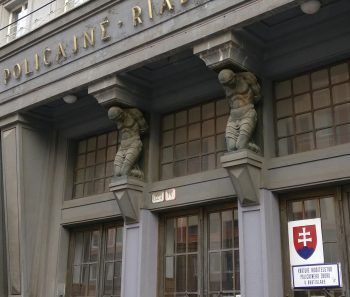We are developing the social individualist meta-context for the future. From the very serious to the extremely frivolous... lets see what is on the mind of the Samizdata people.
Samizdata, derived from Samizdat /n. - a system of clandestine publication of banned literature in the USSR [Russ.,= self-publishing house]
|
I suppose – given that it is the centenary of that catastrophe known as the Russian Revolution – I ought to drag out something from The Times. I have to confess that this is no easy task; not because there is too little but because there is too much. Anyway for your intellectual delectation we have the following selection: the initial report (8/11/17), a background report (9/11/17) and The Times leader (same date) which gets it pretty much spot on:
The latest developments in Russia will hardly surprise those who have watched recent events in Petrograd. When constituted authority is palpably incapable of backing words by deeds, when anarchy is allowed to increase daily, when arms are recklessly given to the mob, then the end cannot be far off.
Update One more (9/11/17 again) but this one comes with a free Balfour Declaration
There once was a Marxist called Lenin
Who did two or three million men in.
That’s a lot to have done in
But where he did one in
His follower Stalin did ten in.
I’ve already quoted Robert Conquest’s limerick in a comment on Perry Metzger’s post below, but, on this anniversary day, it seemed to deserve top billing. I suggest prose commenters continue adding to Perry Metzer’s thread below. Anyone inspired to verse may comment here (or anyone rescuing an old poem on the subject from unmerited neglect).
I regret to have to inform you that, as befits its socialist theme, this imitation of the Erdogan poetry competition does not come with any capitalistic prize money. However if anyone comes up with something witty enough to go viral, they just might thereby help avert the future in which they are sent to the PC Gulag by the comrades.
I struggled for a while for what to write here, but I felt I had to write something, because today is a fateful anniversary.
Exactly 100 years ago, on November* 7, 1917, the Communist Revolution in Russia began.
In the ensuing decades, about one hundred million people died because of the Russian Revolution and other communist revolutions it inspired.
These deaths were not an accident, not the result of some deviant misinterpretation of Karl Marx’s true intent, and not some minor incident of history we all should ignore. They were a direct consequence of what you can read in Marx’s writings and those of his successors.
There is no gentle way to say this: if any ideology can be said to be evil, if any set of ideas can be said to be evil, then Communism is evil.
I’ve seen it said recently, on Twitter, Facebook, and elsewhere, that we mustn’t compare the Communists to the Nazis because the Nazis started with bad intentions while the Communists had good intentions.
I must disagree. The Communists started with intentions every bit as monstrous as those of the Nazis.
No one ever believes their intentions to be evil of course, and our society has, sadly, a great many people who retain a romantic attachment to communism, and who teach this romantic attachment to their friends, neighbors, and (in the case of the huge number of Marxist academics who unaccountably are working in every university), their students.
The Nazis didn’t believe themselves to be evil, and neo-Nazis today do not believe themselves to be evil. So it is with the apologists for Communism — they do not believe themselves to be evil. I’m sure that Marx didn’t perceive himself to be evil, he believed his enemies to be evil, and I’m sure Hitler felt the same. That doesn’t matter. Self-perception has nothing to do with the thing. It’s the hateful ideas and the trail of corpses that are relevant.
And so we face the problem that many people, even now, even after a century of almost inescapable evidence, still hold a romantic attachment to Communism, do not react to a red star or a hammer and sickle with the instinctive horror that they feel for a swastika.
In other words, our society still has not come to grips with Communism.
This is so much the case that, as I’ve mentioned, there are Marxist professors all over our universities inculcating their ideas into young minds, a fact that should fill us with as much horror as the notion of Nazi professors in our universities. I was taught by some of them, and for a time I became a Marxist. After all, my teachers taught me that Marxism was a perfectly okay idea, not an aberrant horror. They seemed like nice people at the time, and the university had hired them, and so surely they couldn’t have been bad? However, I don’t care how nice such people seem, their ideas have killed people in numbers so large I cannot understand them, and although those ideas deserve to be studied and remembered, they should not be studied or remembered with reverence, but rather the way we remember the behavior of the Spanish Inquisition or the priests who sacrificed human beings every day in the Mayan Empire.
What does it even mean for an ideology to have killed one hundred million people? I can’t look at a crowd and easily distinguish numbers in the hundreds or thousands without aid. I certainly do not understand what a million lives means. I truly do not understand what a hundred million mean. That’s too many for my primitive primate brain to understand.
And so, these people who still preach Marxism are aligning themselves with a level of horror and death so beyond human comprehension that it is basically not possible to come to grips with it. And yet, no one protests them the way they would (correctly) protest the hiring or tenuring of a Nazi.
I see kids in the street sometimes wearing Che T-shirts, sometimes wearing red stars. By all rights, of course, a picture of Karl Marx or Che Guevara should be thought of the same way as a picture of Goebbels or Himmler or Hitler himself would be regarded. Red stars and hammers and sickles should, as I said, be viewed the same way people view swastikas, and yet they appear, ironically and without irony, on various bits of pop culture ephemera all around us. Indeed, dare I say it, such symbols even seem to be carried all too often by various contemporary protesters.
Such symbols and people should inspire horror, because they represent piles, veritable mountains, of human corpses. One hundred million deaths means that there’s six and a half billion kilograms of decaying human flesh that your Che shirt or hip little Red Star should bring to mind.
Why doesn’t it inspire horror? Part of it is that somehow we’ve normalized hiring huge fleets of academic apologists for Communism into our universities, but generally speaking, I’m not sure why people have so much trouble coming to grips with this.
Part of it, of course, must be the human capacity for denial of normalized horror. Apparently normal people in 1850 weren’t overly horrified by the idea of human beings being bought and sold and forced to labor and raped at will by their putative “owners”. Apparently normal people in 1400 didn’t think too much of the idea of burning heretics at the stake.
And so, even today, many normal people don’t seem to think too much of how horrifying their romantic attachment to communism is.
I hope, however, that the human race makes progress on this over time. It has abandoned human sacrifice, and slavery, and burning heretics at the stake, and I hope that, someday, it at last rids itself of its residual acceptance of the most disastrous set of ideas the world has ever seen.
[*Today is November 7th, and some of you may be asking yourselves “wasn’t it called the October Revolution?” It was still October in the Russian calendar of the time because they had not yet switched from the Julian to the Gregorian calendar.]
Mark McDonald was the Scottish National Party’s MSP in charge of delivering the Named Person initiative for Scotland’s tiny tots (despite its troubles in the courts, the natz are still pushing it). He was in charge of it until, very suddenly, he wasn’t. His opaque resignation statement hints coyly at the possibility he’d watched one too many Harvey Weinstein films, but an article in the Scottish Review is sceptical that’s the real cause. The writer finds the opacity of Mark’s resignation statement as nothing compared to his prior attempt to explain how Named Person should work:
It is excruciatingly bad. It shows no feeling for the English language or even for the meaning of words.
but he tries to be charitable
It may have been written by a civil servant
Welcome to Scotland today, where political observers rationally speculate whether the plea of Harvey-esque behaviour is just the cover-up for the real reason why the man literally in charge of the wellbeing of the young must resign in haste.
Meanwhile, the Spectator seems to think that another brilliant idea of Scot natz educators has run into problems
… a fellow secondary school teacher who, due to unmanageable stress, now tutors young offenders rather than return to the classroom. A once enthusiastic primary teacher who said to me, ‘I’d rather do anything — anything — than go back …’
The intersection(ality?) of maths pie charts with Shakespeare’s plays is, I confess, one I did not see coming.
“Many seem to believe that the capital based in so-called tax havens is sitting there gathering dust, like many a Saudi prince’s Lamborghini. It isn’t. For the most part, capital in offshore centres is invested around the world, fetching rates of return far in excess of bond yields and the value that most government expenditure can generate. It is unfashionable to praise tax avoidance, but ask yourself the following: would you rather corporate profits be spent on the white elephant of the day, whether HS2 or a ghost airport in Spain? Or is the money better allocated on research and development by private firms? Bear in mind that nothing illegal is going on here: we are talking about entirely legal alternative uses of capital. If capital mobility were halted, individuals and firms would have a much harder time voting with their feet against confiscatory rates of taxation such as those implemented by François Hollande. People in countries with a weak rule of law would be at the mercy of satraps and triple-digit inflation. Never mind that Meg Hillier, the surely well-meaning chairwoman of the Public Accounts Committee, is just calling for greater transparency. The reason we have banking secrecy is precisely so that persecuted groups, such as Europe’s Jews in the run-up to World War II, could take financial refuge from their persecutors.”
– Diego Zuluaga
He is writing following the latest mass data “leak” (aka theft) of offshore account data from the law firm Appleby. The saga is being dubbed “Paradise Papers” (the data comes from the Caribbean, geddit?) Here is another item in defence of offshore centres.
Fox News breached impartiality rules, says state censor Ofcom.
Ofcom’s ruling concluded there was “no reflection of the views of the UK government or any of the authorities or people criticised” and the presenter “did not challenge the views of his contributors; instead, he reinforced their views.”
Leaving aside the question of whether the state has a role in telling broadcasters what news they can broadcast (it does not), let me take a quick look at the front page of the BBC News website right now.

Here is my translation of the pertinent headlines (stories that are probably neutral I have marked in italics, and non-political stories I have omitted):
- Big companies like Apple should pay more tax.
- Tax avoidance is wrong.
- Lewis Hamilton should pay more tax.
- Bono should pay more tax.
- Rich people should pay more tax.
- The state should control who has guns.
- Mugabe wants his wife to take over from him.
- Plastic is bad and greedy people are destroying the planet with it because they are greedy.
- Global warming is still really real and only states working with the UN can save us.
- Trump is being mean to Turkish people.
- Trump wants Japan to help defend against North Korea.
- People were kidnapped in Nigeria.
- A writer used politically incorrect language.
- A woman who was rude to Trump got fired.
- People who voted for Trump probably regret it.
No sign of anything other than a completely neutral world-view there. None at all.

Samizdata wishes you all a happy Guy Fawkes night. Have fun. But perhaps not as much fun as the fellow in the above photo.
The New European thinks its cartoons are a selling point:

I disagree that Stanley Donwood’s cartoons are “fantastic”. The drawings are a tolerably executed pastiche of the style of 1950s cartoons, but there is no clever visual imagery; they merely depict one human being hitting another. Or try to depict it: in the first cartoon the chick’s arm looks too limp to have just knocked that big guy off his feet, but fear not, there is a flash to show that impact did indeed occur. In the second one the word SLAP performs the same function. If you like seeing pictures of your political opponents being hit and sworn at, you will like this!
As for the words, the “punchlines” are nothing but verbal supplements to the punches. Did I say “punchlines” in the plural? There is only one between the two of them. In “PUT THAT ON THE SIDE OF A BUS, FUCKWIT!”, the point is that upon the word “THAT” the woman returns the man’s Leave slogan back to him by hitting him, and in “HOW’S THIS FOR ‘WILL OF THE PEOPLE’ YOU EUROPHOBIC FUCK!”, the point is that upon the word “THIS” the woman returns the man’s Leave slogan back to him by hitting him. While the visual formula of a pretty young woman knocking seven bells out of a fat old man can be repeated ad infinitum, quite soon one is going to run out of Leave slogans and demonstrative pronouns.
Overall, I am not impressed. Nor am I that much bothered. I am confident that the readers of the New European will confine their beatings of Leavers to the realm of imagination; they have plenty of practice in living in a fantasy world after all.
To be honest, the claim made by Nigel Farage to Breitbart London that the cartoons are “glorifying violence against those who voted for Brexit” is a stretch. Both the initial hard-hitting cartoons and his pulling no punches in his objection to them are best seen as just part of the good old knockabout fun of politics. But, as the saying goes, those who live by the sword die by the sword. As it says in the Breitbart article, the New European has been having the vapours about stuff like “the direct correlation between political messaging and violence” since its foundation. In this very issue it has yet another piece saying that real world harm is done by images, in this case denouncing “the complicit culture of Lad’s mags”. It is entertaining to see it being slapped down for the very same offence.

Truth in advertising?
The undeniable truth is that neither slavery nor Jim Crow nor the harshest racism has decimated the black family the way the welfare state has.
– Walter Williams
Not late news, but a film review. The Death of Stalin opened recently across the UK. It is an excellent black comedy, 5 stars. The film opens with a musical performance for Radio Moscow, Stalin likes it, and asks for the recording. There is none, so, in true Soviet style, the recording is ‘faked’ by the terrified producer, who resorts to desperate measures. The backdrop to this is nightly NKVD raids, roaming through apartment blocks with the citizenry knowing what to expect, Beria adds his own touches to the minutiae of the raids. We see Stalin’s inner circle, all desperately keeping track of what they have said, and striving to please their master.
Then Stalin collapses, with a little sub-plot device thrown in. Beria is the first to find him, and gets his head start on the race for power. The others in the Praesidium arrive, and the plotting begins. Efforts to get a doctor for Stalin are complicated by the consequences of the Doctors’ Plot, with the NKVD rounding up whoever they can find instead. But it becomes clear that Stalin is in a terminal condition and he then dies.
It should be noted that the film is by the writers of The Thick of It, something, not having a TV, I have never seen, but it has the flavour of a much coarser version of an Ealing Comedy. Beria’s raping and torturing is a major theme, and anyone who sits through the first 15 minutes should by then be under no illusion about the nature of the Soviet Union and socialism. Another excellent aspect of the film is the use of various accents, Stalin is a cockney (perhaps he should have been Welsh, an outsider, emphasising his Georgian origins). Zhukov a bluff Lancastrian (or Northerner), Malenkov and Khrushchev have American accents.
Malenkov, who behaves more like a Principal at a minor East Coast University, seems blissfully unaware that his revolutionary colleagues are actually real murderers. He is nominally in charge of the country and the plotting begins. Beria wishes to start a liberalisation for his own reasons, Khrushchev is put in charge of transport and is lumbered with the funeral arrangements, much to his disgust. Stalin’s son, Vasili, appears on the scene, coming over as a spoilt lunatic. He plans to make a speech at his father’s funeral, which is reluctantly agreed to. Svetlana, Stalin’s daughter, frets over her future. Khrushchev and Beria both promise to protect her. Molotov, played by Michael Palin, is still the Old Bolshevik, totally loyal to the Party, and still regarding his beloved wife as a traitor after Beria gets her released from prison. Eventually, he comes round to support the others against Beria, who has done a Robespierre and shown his hand against his rivals. An excellent Marshal Zhukov plays a decisive role in the final confrontation with Beria, after the competing plans for the funeral arrangements lead to an embarrassing massacre by the NKVD. At the final trial, numerous allegations of sexual abuse are made, a curious echo for our times.
It is hard not to laugh throughout the film, and yet the relentless nature of the evil of the Soviet State is laid bare for all to see, with torture and terror common. It is fairly accurate to what we know of those events, and whilst one might wonder why if the NKVD is so powerful Beria did not simply arrest everyone, it does not and need not show the full picture of the what checks there were on his power, such as the Peoples’ Control, and the Party/NKVD/Army balance. The film credits also acknowledge the tax shelter of the Belgian Federal government.
Every one who voted Democrat, Labour, Green or SNP should watch this film, for a bit of nostalgia and to dream of the future. Everyone who did not support any of them should watch it and be grateful that they are not in total control, for now.
Yet, socialism still has sympathizers in the West. Many Americans believe that socialism is good, whereas communism, fascism, and Nazism (National Socialism) are violent and anti-democratic. A public-opinion survey published last year proved that general assumption: 43 percent of respondents younger than thirty had a favorable view of socialism; only 32 percent had a favorable view of capitalism. This is a powerful warning. The anti-capitalistic mentality has brought suffering and mass murder in all socialist countries and has reduced standards of living and the quality of life in mixed economies.
The Soviet Union is now gone, as are the huge statues of Marx and Lenin that littered the East, but ideas have consequences, and no body of ideas attracted a greater following than Marxism-Leninism. A Russian aphorism says, “The only lesson of history is that it teaches us nothing.” For too many people this is as true as ever.
– Yuri Maltsev
|
Who Are We? The Samizdata people are a bunch of sinister and heavily armed globalist illuminati who seek to infect the entire world with the values of personal liberty and several property. Amongst our many crimes is a sense of humour and the intermittent use of British spelling.
We are also a varied group made up of social individualists, classical liberals, whigs, libertarians, extropians, futurists, ‘Porcupines’, Karl Popper fetishists, recovering neo-conservatives, crazed Ayn Rand worshipers, over-caffeinated Virginia Postrel devotees, witty Frédéric Bastiat wannabes, cypherpunks, minarchists, kritarchists and wild-eyed anarcho-capitalists from Britain, North America, Australia and Europe.
|







